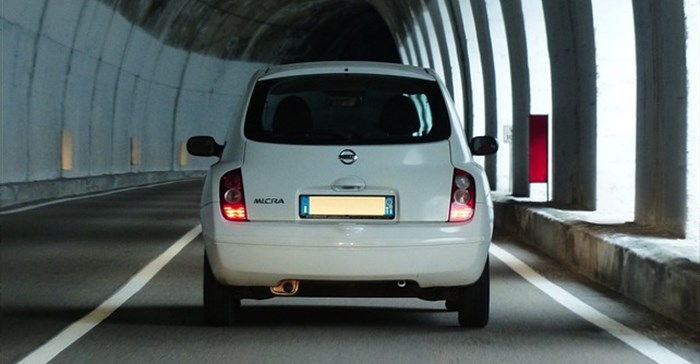
Top stories






AutomotiveHilux Custom Builds offers purpose-built solutions for your business
Toyota South Africa Motors 16 Feb 2026
More news


Marketing & Media
Ads are coming to AI. Does that really have to be such a bad thing?














Information gleaned from devices is already passed on to companies like TomTom and Google, enabling them to alert users to traffic conditions. Now recovery companies say their data could also be sold to urban planners, advertising agencies, marketers and financial institutions. Insurance companies are particularly anxious for information.
De Nobrega says telematics devices in clients' vehicles feed back about 35m pieces of information to his company's computers each day. Cartrack deputy CEO John Edmeston says: "The market you can find for all this information depends on your imagination and creativity."
As technology becomes more sophisticated, the flood of information will accelerate. De Nobrega says it's already "almost impossible" to keep pace with what comes in. "When there is so much, how do you find the gems?"
But what information should recovery companies pass on? Matrix CEO Brendan Horan says: "Telematics data should not be sold to external parties. Reputable companies endeavour to ensure that their systems and consumer data are well protected, and that no client information is accessible by external parties."
But what if it's trends that are passed on, rather than individual information? De Nobrega, for example, says that if data from tracking devices shows that large numbers of 20-something women routinely drive past a digital advertising billboard at a certain time of day, and men in their 40s at another time, there is nothing wrong with informing the relevant advertising agency.
Similarly, says Edmeston, why wait for road surfaces to crumble before determining which routes heavy trucks are taking? "We know where our millions of vehicles travel, so we can tell roads departments where the 10t trucks go. It will enable authorities to manage roads better." No personal client data is divulged in these examples. Where individual information is involved, "we must have your explicit permission", De Nobrega says. "We are the custodian of your personal details. We must treat it with absolute confidentiality."
But it's not just about providing information to third parties. As Horan observes, companies must also find innovative ways to provide extra value for customers. Fleet management, for example, has become an important part of the business. Devices in corporate fleet cars and trucks - and even delivery motorcycles - can determine not only where vehicles are but also how they are driven. Drivers' braking and acceleration habits can be recorded, analysed and corrected. Fuel theft can be identified. Horan says: "Monitoring opens up numerous opportunities to save costs, reduce risk, enhance customer service and improve businesses' efficiency and safety."
Where accidents occur, devices can explain why. "Data helps you reconstruct what happened," says De Nobrega.
Now recovery companies say they want to expand services to non-fleet clients. Individuals may want to improve their own driving habits, reduce running costs, or gain access to live traffic information and alerts, roadside protection or concierge services. Companies say they continually interact with customers to learn what they want.
However, they stress that nothing about this new emphasis means they are neglecting their original activities. Tracker operations director Ron Knott-Craig says vehicle theft and hijackings remain a serious problem in SA.
"Some theft is for fun but mainly vehicles are stolen to commit another crime," he says. Others are stolen to order. Tracking companies' recovery rate is high, but rental cars often make their way to Mozambique, while Malawi is a favourite stop-off for Mercedes-Benz C-Class cars and Hilux bakkies. "We share much information and cooperate a lot with other countries in the region," says Knott-Craig.
Then there are hijackings. Security devices on many luxury vehicles are so sophisticated that sometimes the only way to steal them is with the driver inside. Kidnappings are becoming more popular because they give thieves even more time before thefts are reported.
Edmeston bemoans the fact that vehicle theft violence is on the rise. "Ruthlessness and lawlessness are becoming worse," he says. "The robbers believe they are invincible; that they won't get caught and that even if they do, they won't go to jail. The violent nature of criminals is increasing."
Source: Financial Mail

For more than two decades, I-Net Bridge has been one of South Africa’s preferred electronic providers of innovative solutions, data of the highest calibre, reliable platforms and excellent supporting systems. Our products include workstations, web applications and data feeds packaged with in-depth news and powerful analytical tools empowering clients to make meaningful decisions.
We pride ourselves on our wide variety of in-house skills, encompassing multiple platforms and applications. These skills enable us to not only function as a first class facility, but also design, implement and support all our client needs at a level that confirms I-Net Bridge a leader in its field.
Go to: http://www.inet.co.za